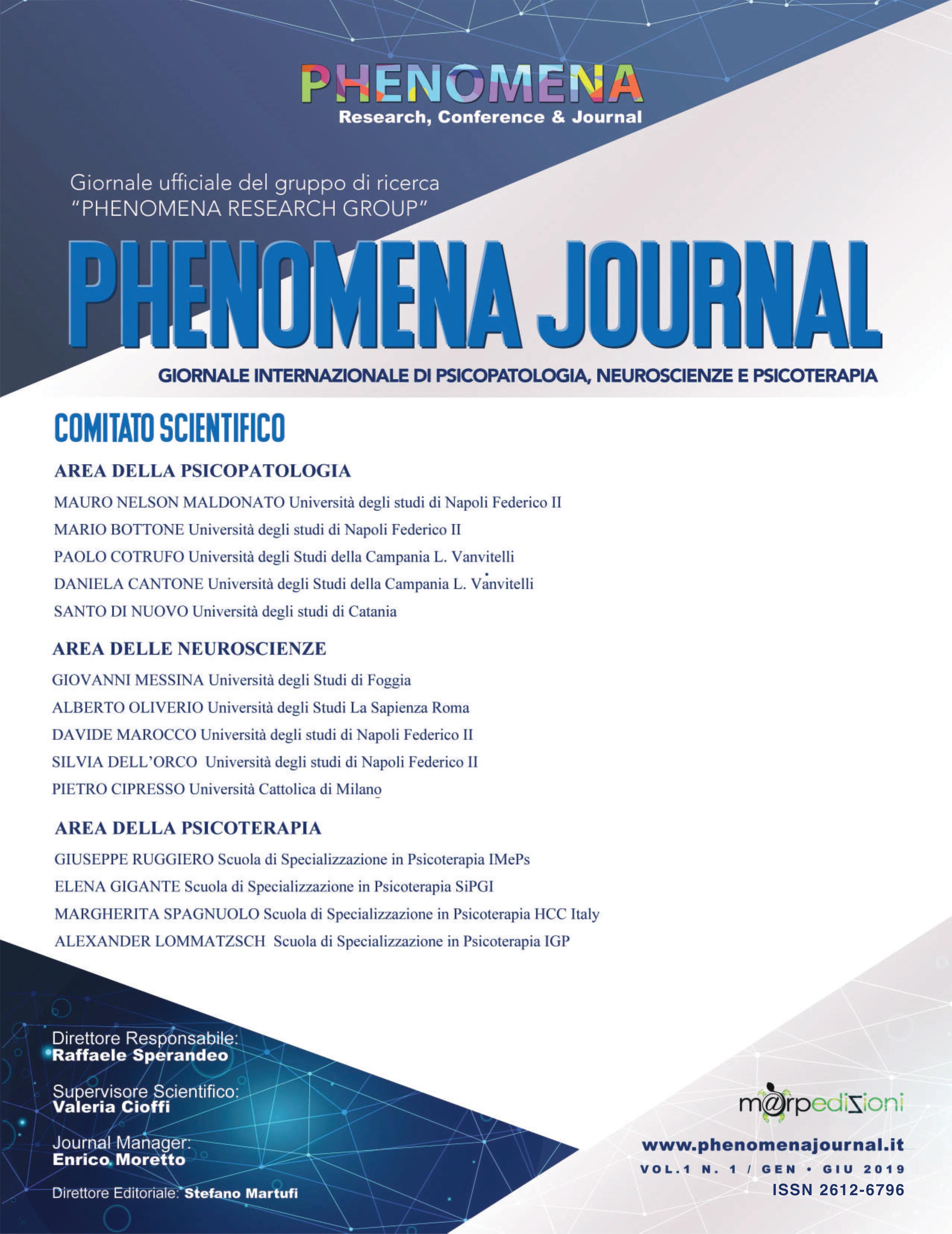Anatomia di una scelta irrazionale: Verso una nuova ipotesi di studio sul decision making e il disfunction effect
Pubblicato 19.06.2019
Come citare
Abstract
It often happens that the most relevant decisions in terms of consequences are taken in situations of uncertainty and risk, as well as in conditions of strong temporal stress. In such situations, some decisions are more considered, others, instead, appear more irrational. In the last twenty years, studies on decision making have focused mainly on problem solving skills and cognitive processes underlying rational choices. Only since the fifties of the twentieth century, different research paradigms have tried to shed light on the mechanisms responsible for choices that do not conform to the classical model of rational choice. Among these mechanisms the disjunction effect stands out which, although scarcely investigated, could prove to be a fundamental variable.
Method: In order to analyze the reference literature and the studies of the last ten years, a research was carried out on different online science servers (PubMed, ScienceDirect, Google Scholar, ResearchGate), using the following search keys: irrational choices, rational choices, decision making, decision style, intuitive decisions, deliberate decisions, self-awareness, self-regulation, disjunction effect.
Starting from the theoretical assumptions indicated above, a methodological hypothesis was formulated for the study of decision-making processes, based on unconventional methods, which move away from the administration of the classic tests and decision tasks expressed in verbal form.
Objectives: The aim of this work is to highlight the most relevant studies on irrational choices, in order to outline their anatomy. The final objective is to lay the foundations for the development of an empirical research that thoroughly investigates irrational choices and the disjunction effect through tools such as the Implicit Association Test (IAT) and Virtual Reality (VR).
Expected results: Using technologically advanced tools applied to psychology research, it would be possible to allow the experimental subjects to act the choice through VR applications, producing an immersive experience. It is expected to reduce the disturbance variables and be able to obtain more precise measurements, overcoming the problems related to the verbal formulation of the decision task, more and more often posed as a fundamental criticism to the study of decision making.
Kayword: Decision-making, disjunction effect, virtual reality, implicit association test, irrational choices.
ABSTRACT IN ITALIANO
Introduzione: Accade spesso che le decisioni più rilevanti in termini di conseguenze siano prese in situazioni d’incertezza e rischio, oltre che in condizioni di forte stress temporale. In tali situazioni, alcune decisioni risultano più ponderate, altre, invece, appaiono più irrazionali. Negli ultimi venti anni, gli studi sul decision making si sono concentrati principalmente sulle capacità di problem solving e sui processi cognitivi alla base delle scelte razionali. Solo a partire dagli anni cinquanta del XX secolo, diversi paradigmi di ricerca hanno cercato di far luce sui meccanismi responsabili di scelte non conformi al modello classico di scelta razionale. Tra questi meccanismi spicca l’effetto di disgiunzione che, sebbene scarsamente indagato, potrebbe rivelarsi una variabile fondamentale.
Metodo: Al fine di analizzare la letteratura di riferimento e gli studi degli ultimi dieci anni, si è svolta una ricerca su diversi science server online (PubMed, ScienceDirect, Google Scholar, ResearchGate), utilizzando le seguenti chiavi di ricerca: irrational choices, rational choices, decision making, decision style, intuitive decisions, deliberate decisions, self-awareness, self-regulation, disjunction effect.
A partire dai presupposti teorici indicati in precedenza, è stata formulata un’ipotesi metodologica per lo studio dei processi decisionali, basata su metodi non convenzionali, che si allontanano dalla somministrazione dei classici test e decision task espressi in forma verbale.
Obiettivi: Scopo di questo lavoro è evidenziare gli studi più rilevanti sulle scelte irrazionali, al fine di delinearne l’anatomia. L’obiettivo finale è porre le basi per lo sviluppo di una ricerca empirica che indaghi a fondo le scelte irrazionali e l’effetto di disgiunzione tramite strumenti quali l’Implicit Association Test (IAT) e la Virtual Reality (VR).
Risultati attesi: Utilizzando strumenti tecnologicamente all’avanguardia applicati alla ricerca in psicologia, sarebbe possibile consentire ai soggetti in fase sperimentale di agire la scelta tramite applicazioni VR, producendo un’esperienza immersiva. Ci si aspetta di ridurre le variabili di disturbo e riuscire a ottenere misurazioni più precise, superando i problemi legati alla formulazione verbale dei decision task, sempre più spesso posta come critica fondamentale allo studio del decision making.
Parole chiave: Decision-making, effetto di disgiunzione, realtà virtuale, implicit association test, scelte irrazionali.

